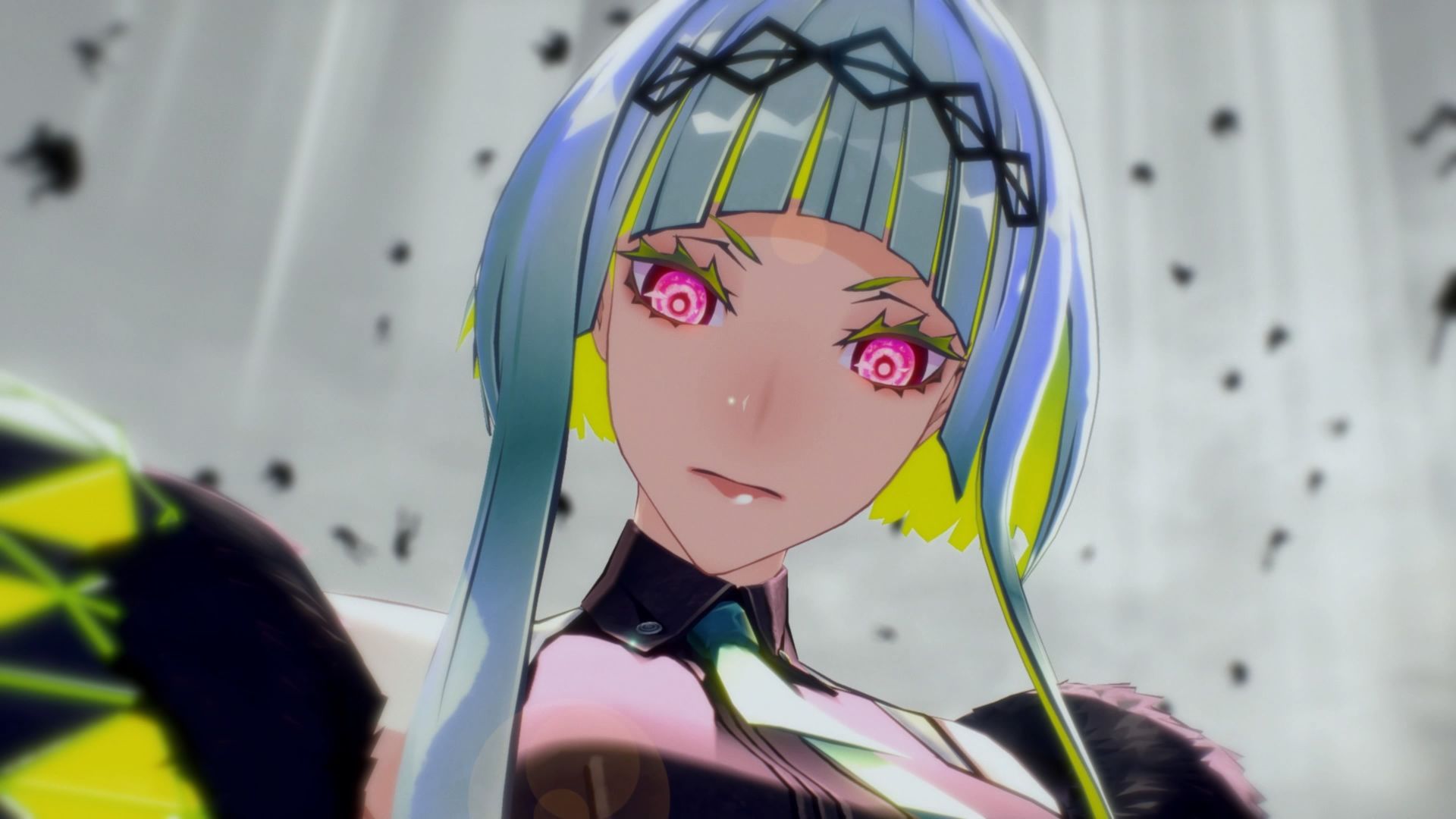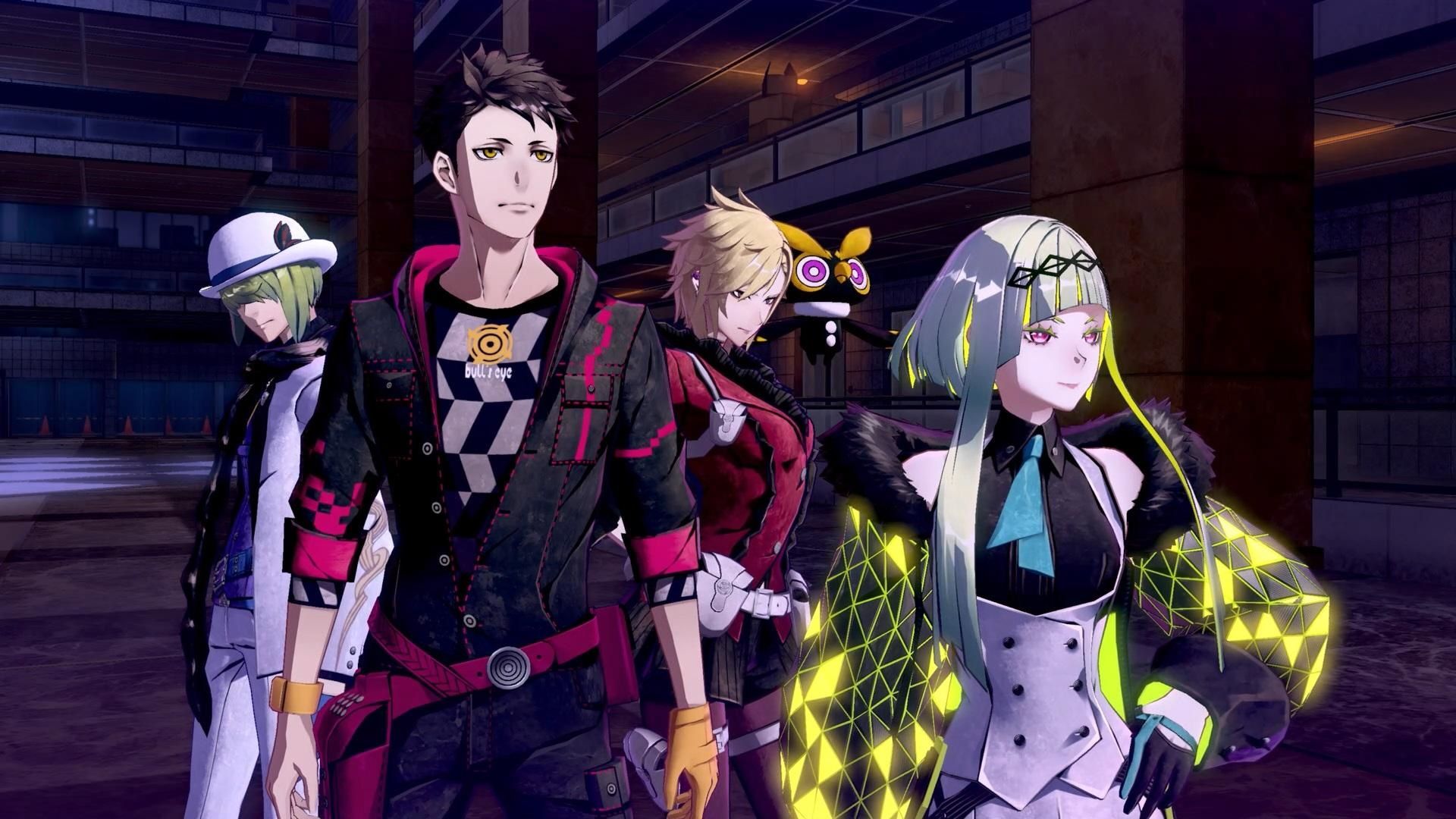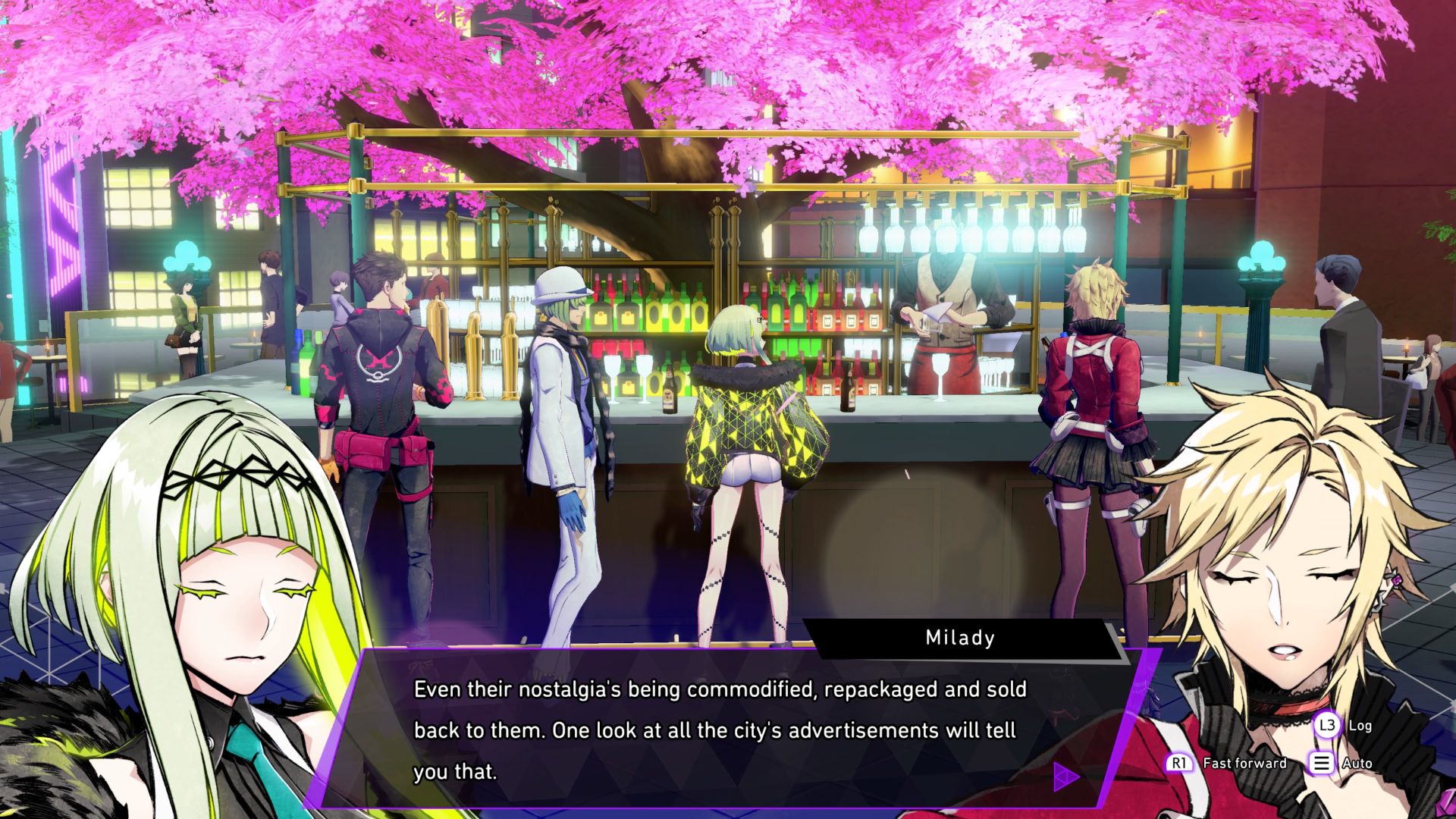Soul Hackers 2 is the answer to Atlus’ Persona problem
School’s out

After Persona 3’s US launch in 2007, the high school sim series gradually became the face of Atlus. It did this at the expense of almost everything else in the developer’s stable. Shin Megami Tensei releases slowed down, Etrian Odyssey seemingly ran its course, and Catherine – for better or worse – was never followed up. Spin-offs like Soul Hackers and Digital Devil Saga, meanwhile, disappeared completely.
It’s a happy problem for any developer to have. When studios find something their audiences want to buy, they naturally focus on that instead of other, riskier projects. But it does mean Atlus has fallen into something of a style rut, crafting narratives that could only fit either the Persona brand of school stories or the broad moral philosophizing of Shin Megami Tensei games.
Into this mix steps Soul Hackers 2. More than just a second shot for a long-discarded series, it’s a chance for Atlus to reinvigorate its storytelling – exploring themes, settings, and ideas that don't have a home anywhere else.
Persona’s social links gamify relationships. Sure, you learn more about each character as you spend time with them – but, partly thanks to Persona’s rigid time management, these interactions always unfold with one eye on the list of abilities unlocked at the next rank, to see if it’s worth the trouble. Shin Megami Tensei falls into a similar trap with its alignment system. There may be no practical benefit to allying with a certain friend, like in Persona – but if you want a specific ending, you find yourself saying whatever you think a character wants to hear, just to further your own goals.
In Soul Hackers 2, by contrast, you just hang out with your teammates at the local outdoor cyberpunk bar – gradually learning more about them and the circles they move in. There are technically rewards on offer, in the form of Soul Points, but the way the feature works prioritizes character development over tangible benefits. Soul Points eventually unlock new character levels of the Soul Matrix – rarely vital in combat. It's much more about seeing your friends’ backstories develop as new memories surface.
Summon special

Soul Hackers 2 is a dungeon crawler before anything else, but even though character development takes a backseat to combat, Atlus still manages to build a set of strong and more meaningful relationships. One of the first things you notice about the Soul Hackers 2 cast is their age. All the comrades of AI-turned-human protagonist Ringo are adults, with seemingly adult problems. That doesn’t necessarily mean Atlus explores more complicated topics as a result – at their core, Milady’s and Arrow’s relationship issues are just darker variations of the same problems high schoolers face, and Saizo the troubled detective is a personality we’ve seen before. But Soul Hackers 2 perfects the ‘dysfunctional family’ party dynamic that RGG Studio’s Yakuza: Like A Dragon merely made endearing.
The summoners live in a bustling metropolis and have their own network of colleagues and acquaintances, but there’s a pervasive sense of isolation. Ringo’s unique perspective as an outsider means she’s easier for people to talk to – but unlike in Persona and Shin Megami Tensei, everyone’s lives don’t end up revolving around her. Well, technically they do – an unfortunate quirk with Ringo’s soul hacking means her comrades are tied to her and can either cooperate or go back to being dead. But aside from Ringo being the one who keeps everyone alive, her goal is to help them recover the parts of themselves they lost – to find meaning in their lives again, and create a haven against the brutal harshness of the outside world.
Get daily insight, inspiration and deals in your inbox
Sign up for breaking news, reviews, opinion, top tech deals, and more.
Outside of Persona 4’s bad ending, there’s rarely any doubt that what you and your schoolmates are doing in Persona is the right thing
The crew is a motley bunch, some of whom would like nothing more than to re-kill their colleagues. However, seeing them gradually learn to love themselves again and tolerate each other leads to some surprisingly poignant moments – of the kind I’d stopped expecting from Atlus.
This setup feels like something only Soul Hackers 2 and its refreshing twist on moral perspective could pull off effectively. Outside of Persona 4’s bad ending, there’s rarely any doubt that what you and your schoolmates are doing in Persona is the right thing. Shin Megami Tensei tries to muddy the boundaries that separate right and wrong. However, by centering on the same three broad moral alignments almost every time, the game limits how fresh and deep its messaging can be.
Devil’s advocate

Soul Hackers 2 sits instead in a gray area. Devil summoners are essentially a loose organization of mercenaries with no real vision of a better world they’re trying to create. Summoners who tried to kill each other on a mission just days earlier will mingle and socialize amicably in one of the city’s neutral areas. Some go rogue and seek their own version of justice, only to have other summoners decide they pose a threat and hire bounty hunters to put them down.
You take these commissions on, because naturally, you want the rewards they offer. But while stopping the villain might solve the immediate problem, as one early-game foe points out, it doesn’t fix the structures that pushed them over the edge to begin with.
The apocalypse Ringo is created to prevent is, obviously, a bad thing, but the overriding question Soul Hackers 2 asks and never fully answers is whether or not accomplishing that task is enough. The world Soul Hackers takes place in is fundamentally broken. Everyone realizes it, and even Ringo, limited in her cognitive abilities as a simple human, instantly recognizes how stagnant and cruel society has become. Keeping the world from meeting a grisly end barely qualifies as the minimum you can do in this case, and it can never be enough to make a lasting difference.
It feels like the end of an era, as Atlus and the world it created move beyond comfortable stasis and step into a less certain future
Atlus even uses a subtle callout to past Devil Summoner games to illustrate just how messed up the world is. A member of the renowned Kuzonoha, and someone vital to Ringo’s mission, falls on hard times and lives in the subway system with other homeless people – pushed out of a society that no longer has a use for them. It feels like the end of an era, as Atlus and the world it created move beyond comfortable stasis and step into a less certain future. The upside is that it’s a future of bolder, less predictable storytelling.
The problem with Soul Hackers 2 raising these questions and themes is that it doesn’t get close to resolving them. It’s a game that feels very much like a first step towards something bigger – a tentative effort to see what might be possible and how it may resonate with fans. I hope the response is what Atlus is looking for. The new and revived Soul Hackers has too much potential to let die again.

Josh is a freelance writer who’s appeared on GameSpot, Eurogamer, Polygon, IGN, and more. He covers pretty much everything from guides to reviews and news and is a particular fan of RPGs and story rich games. When he’s not chatting incessantly about Falcom games, you’ll probably find him outside with his Australian Shepherd and Belgian Malinois.